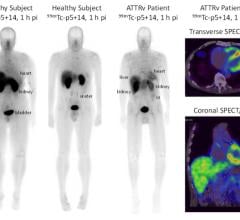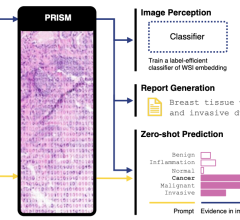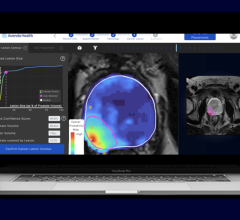
September 30, 2011 – The Molecular Imaging Biomarker Research Group of Siemens Medical Solutions recently completed a Phase II multi-center clinical trial of its HX4 positron emission tomography (PET) imaging biomarker, which is designed to detect hypoxia – a reduction in tissue oxygen levels – in solid tumors. The trial’s primary objective was to test the reproducibility of HX4’s uptake in tumors by conducting PET/computed tomography (CT) scans of the same patient on sequential days in a test-retest protocol. The trial enrolled 40 patients with head and neck, lung, liver, rectal or cervical cancers, who were scheduled to receive chemotherapy, radiation therapy or a combination of the two.
Solid tumor hypoxia develops when the vascular system is unable to supply the growing tumor mass with adequate oxygen, leaving portions of the tumor with lower oxygen levels than healthy tissues. Hypoxic tumors are more resistant to radiotherapy and chemotherapy, resulting in overall poor outcomes. By developing an imaging biomarker that detects tumor hypoxia, Siemens hopes to provide oncologists with more specific information regarding tumor cells that can be used in the fight against cancer.
“This Phase II trial supports Siemens’ efforts to develop new imaging biomarkers that enable personalized treatments,” said Hartmuth Kolb, vice president, Siemens Molecular Imaging Biomarker Research. “By providing the integrated value chain of oncology tools – from imaging biomarkers to imaging systems such as the Biograph family of products and our software solutions to analyze and quantify results – Siemens Molecular Imaging gives oncologists the diagnostic tools to care for their patients.”
For more information: www.siemens.com/healthcare


 July 30, 2024
July 30, 2024 








